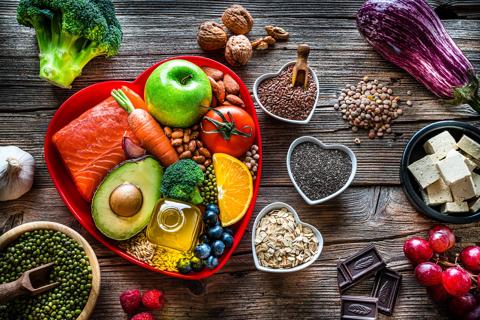Advertisement
Watch out for these lesser-known culprits

Most people know about common risk factors for heart attack, including smoking, diabetes, high blood pressure, obesity and lack of exercise. These tend to be universal, meaning they can increase the risk in nearly anyone.
Advertisement
Cleveland Clinic is a non-profit academic medical center. Advertising on our site helps support our mission. We do not endorse non-Cleveland Clinic products or services. Policy
But there are other factors or health conditions that put certain people at risk says cardiologist Steven Nissen, MD. Let’s talk about these lesser-known risk factors and who’s likely to be affected.
Studies have shown that both intense anger and grief can occasionally trigger a heart attack. This most likely occurs because of sudden increases in heart rate and blood pressure that are triggered by strong emotions.
Because many of us experience these emotions throughout our lifetime, they are more likely to negatively impact people who are already at a greater risk for heart attack due to other traditional risk factors.
There is a condition called Takotsubo cardiomyopathy, which may imitate a heart attack, but is somewhat different. It tends to occur more often in women at times of intense emotion and produces heart attack-like symptoms that can cause chest pain that is indistinguishable from a heart attack.
“It may be the result of an arterial spasm,” Dr. Nissen says. “With treatment, the heart function often returns to normal after a few weeks. Later testing generally shows little or no evidence of heart attack.”
A bout of sudden, strenuous physical activity can lead to heart attack in people who are not physically fit.
It can happen from something as seemingly harmless as a pick-up game of basketball, or from a very strenuous activity like shoveling snow.
“People who are not used to exercising, or have traditional risk factors for heart disease, are at increased risk,” Dr. Nissen says.
Cold temperatures cause the arteries to constrict, which can cause a sudden increase in blood pressure. Combine this with physical exertion, and the strain may be too much for some hearts to take. Every year, shoveling snow sends more than 11,000 people to the hospital — at least 7% with heart trouble.
A heavy meal can occasionally trigger a heart attack. No one knows exactly why this happens, but eating does divert blood away from the heart and pushes it toward the GI tract, which be problematic for susceptible individuals.
If you’re at risk for heart attack, it’s a good idea to limit your caloric intake overall and avoid binging on large meals.
When you’re diagnosed with a serious medical condition that seems unrelated to your heart, the risk of heart attack might not cross your mind. For this reason, the role of certain diseases in raising the risk of heart attack is often disregarded.
However, diseases that are known to increase the risk of heart attack include:
Advertisement
Any person with one of these conditions should see a cardiologist, in addition to their regular doctor, Dr. Nissen says.
Advertisement
Learn more about our editorial process.
Advertisement

Factors like temperature, energy levels and sleep quality play a role in determining whether working out in the morning or evening is best for you

Obesity, age and preexisting heart conditions can all raise your risk of cardiovascular disease during pregnancy

Xylitol in processed food can increase risk of heart attack and stroke — but there’s no danger in xylitol in oral care products

If your provider has ruled out a serious cause, you can treat chest pain at home with antacids, inhalers or anti-inflammatory medications

Walking is a great goal, but how many steps are best for you depends on factors like your fitness level and age

Research shows a strong association between rheumatoid arthritis and heart issues

Eating more natural, whole foods can lower your risk of heart and cardiovascular diseases

First things first — slowly sit or lie down

Focus on your body’s metabolic set point by eating healthy foods, making exercise a part of your routine and reducing stress

PFAS chemicals may make life easier — but they aren’t always so easy on the human body

While there’s little risk in trying this hair care treatment, there isn’t much science to back up the claims